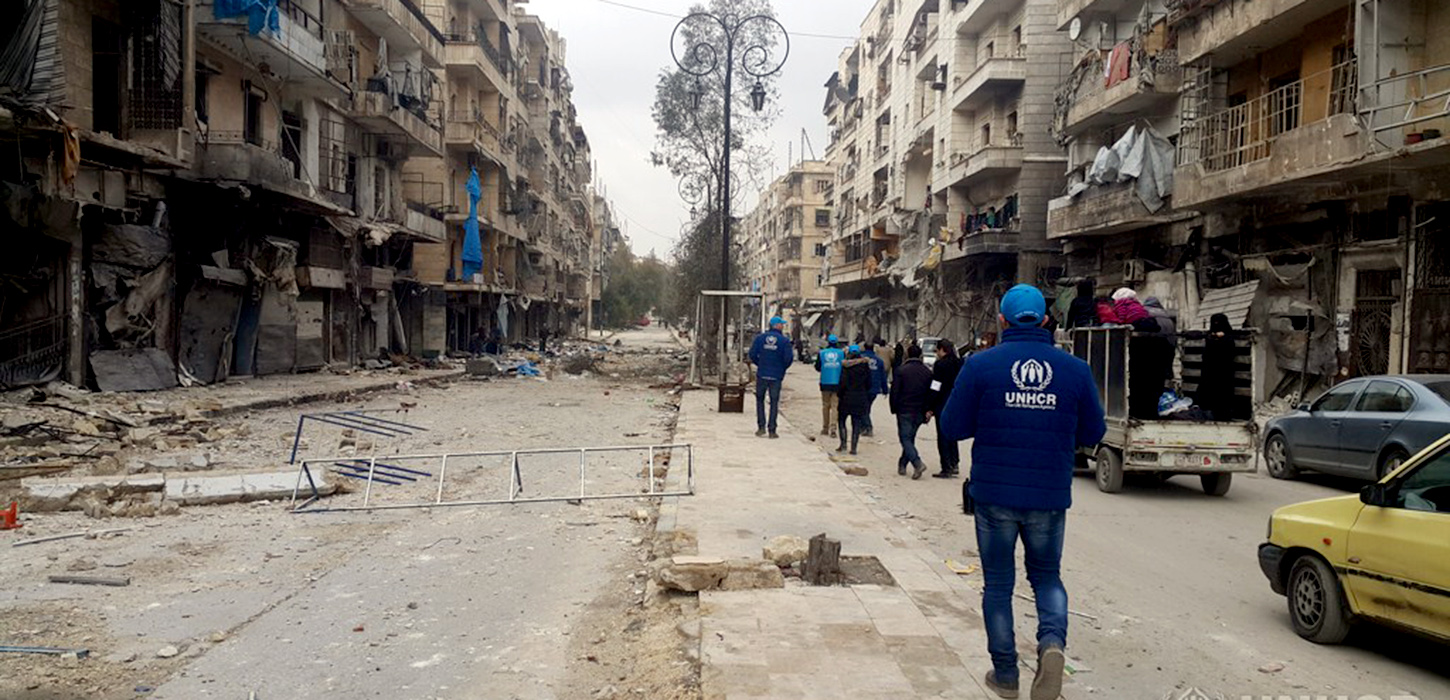
Six years since the start of the crisis, the needs of people displaced inside Syria continue to grow. Throughout it all, UNHCR has been present, delivering the vital support your donations make possible.
Together, we continue to help Syrian families in their hour of greatest need. Their resilience is inspiring. Despite serious risks to their own safety, our staff are out there every day, helping identify and assist those in most need. We couldn’t do it without the donations of caring people like you.
Here are six ways you’ve helped struggling families in Syria this past year.
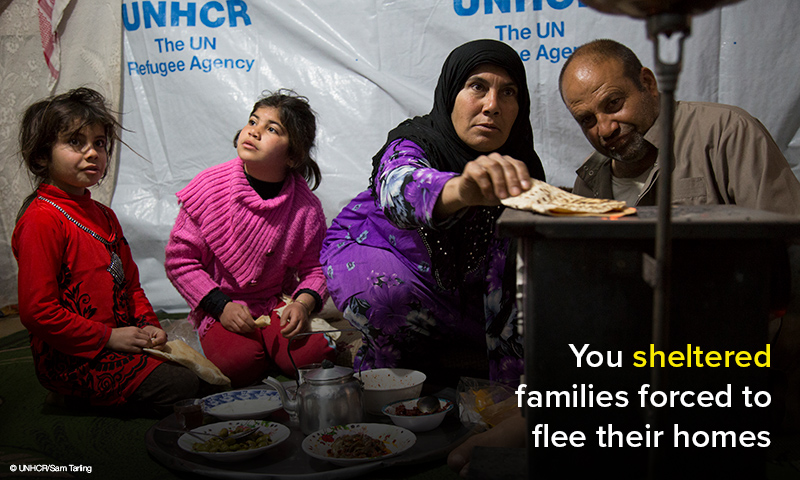
After six years of conflict, hundreds of thousands of houses in Syria have been damaged or completely destroyed, forcing millions to seek refuge in collective shelters like schools, unfinished buildings or cramped basements. For women, children, the elderly and the disabled, living in these conditions can be especially risky. UNHCR teams work hard, day in and day out, to give Syrians displaced inside the country access to proper shelter. For example, we renovate family housing and collective shelters. When other options are not available, we provide tents to give emergency shelter to families forced to flee. In 2016, your generous donations helped UNHCR provide shelter support to over 91,000 displaced people in need inside Syria.
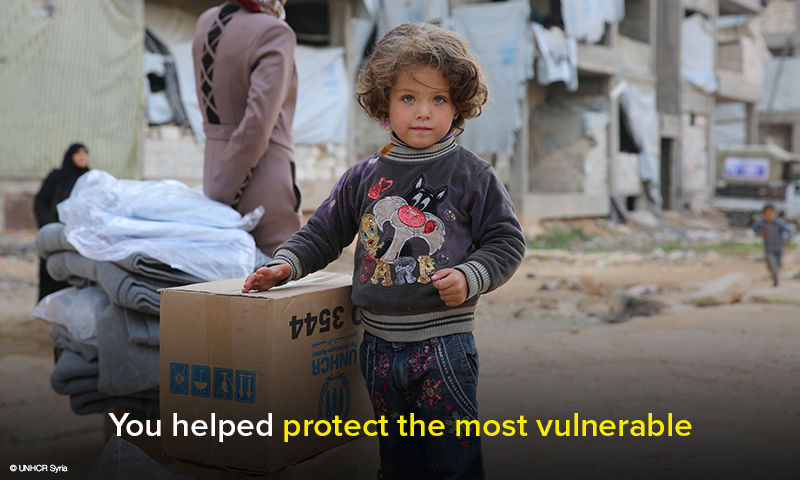
In 2016, thanks to your support, UNHCR reached over two million vulnerable people in Syria with protection and community services. This includes legal aid, psychosocial support, vocational training, community-based initiatives as well as raising awareness on issues like sexual violence. For example, UNHCR and partners helped people who lost their birth certificates or other key documents when they fled their homes to apply for new ones. This legal aid is key to ensuring people can access basic services like education and health.
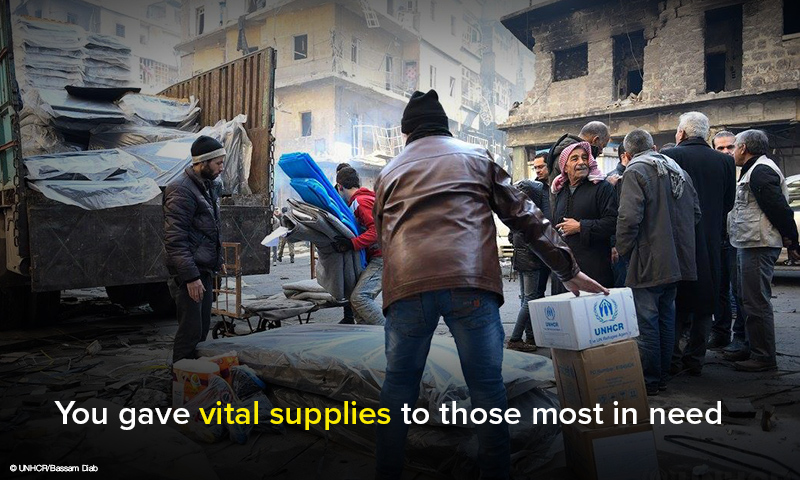
When people are forced to flee their homes, like millions in Syria have had to do, they often leave with nothing but the clothes on their back. That is why providing basic supplies like warm blankets, kitchen sets and jerry cans for water is so vital. In 2016, thanks to your support, UNHCR reached over three million people with basic aid items like these. We deliver essential supplies to the most vulnerable–even in hard-to-reach areas. During times of extra hardship, we adapt the supplies we provide. Over the past winter, for example we provided more than 579,000 high thermal blankets and 158,000 winter clothing kits, to help people survive the coldest months. Sometimes a simple blanket can make all the difference to a child or adult exposed to the cold, wind and rain, without the protection of a home.
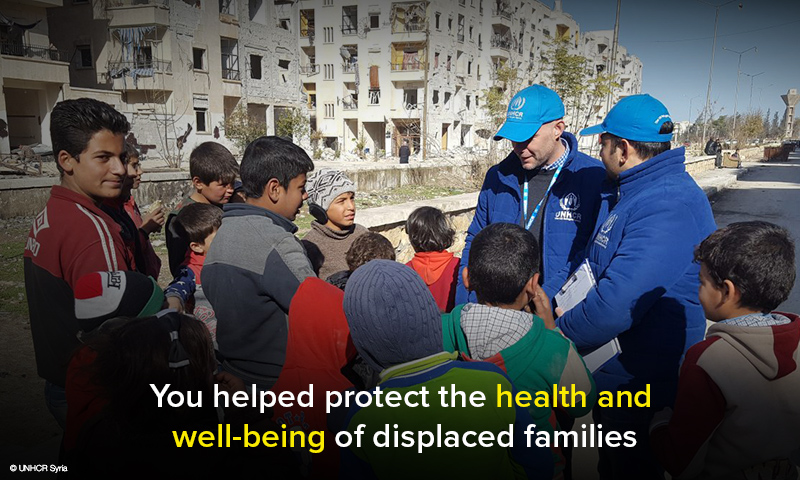
Damaged health facilities. Shortage of medicine and staff. Power outages. Six years of conflict have dramatically deteriorated healthcare services in Syria. To protect the health of the most affected communities, UNHCR and partners provide free access to primary health clinics and supports life-saving medical and surgical interventions, among other activities. In 2016, nearly 700,000 displaced people in Syria had access to health care–through the support of generous donors like you.
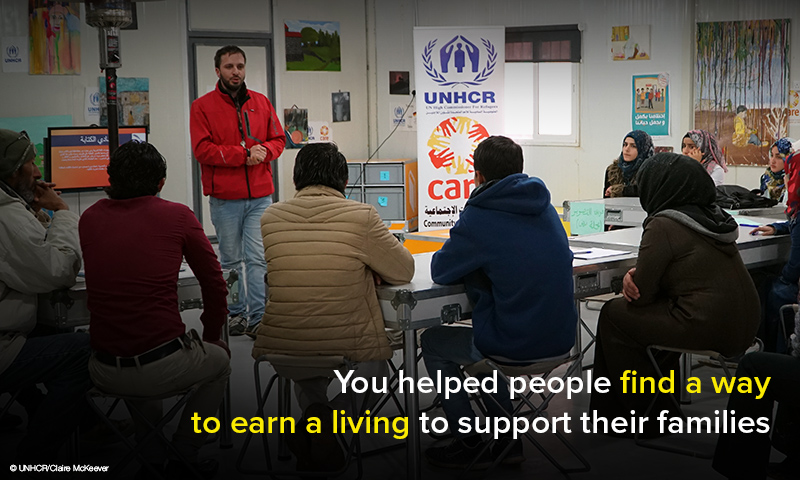
Building on the resilience of people struggling to survive, UNHCR helps displaced families and host communities improve their well-being and situation by providing vocational and life skills training. These courses included language courses, sewing, hairdressing, computer and knitting. In the first six months of 2016, your donations also supported the distribution of 2,000 livelihoods kits including plumbing or carpentry kits to displaced people who have lost their means of living. Together, in the same period, we gave out over 160 small business grants, to empower the most affected displaced people to start new businesses. This helps the local economies and benefits the community.
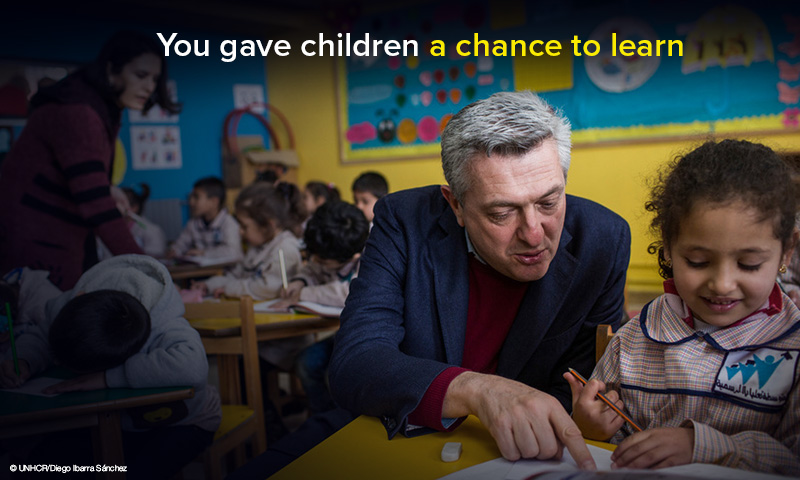
Thousands of schools in Syria have been destroyed as a result of the conflict. In 2016, UNHCR worked with 13 education partners inside Syria to provide education-related activities in community centres, shelters and public schools, to ensure access to education for displaced and refugee children affected by the crisis. Tens of thousands of primary and secondary students have benefited from extra training, remedial and catch-up classes, with teachers trained on child protection and psychosocial support, in coordination with the Ministry of Education.
